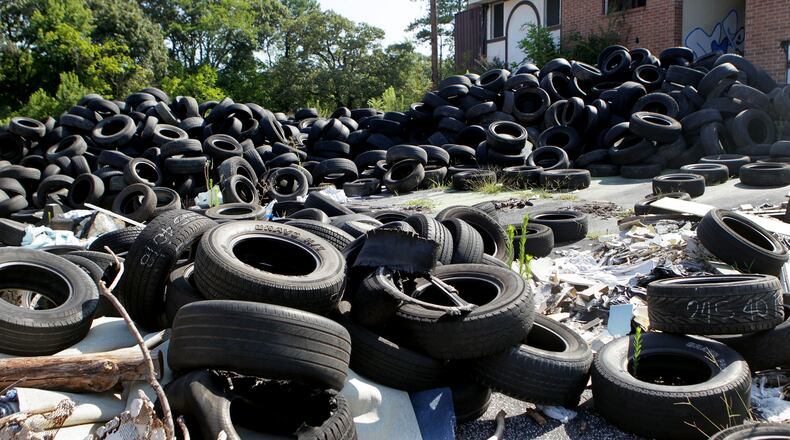While Georgia was the center of the universe this past week with the hotly contested presidential race and two U.S. Senate elections, voters quietly but overwhelmingly passed a proposed “anti-bait-and-switch” constitutional amendment that was a decade in the making.
Lawmakers have for years debated legislation to keep the General Assembly from passing new fees and promising the money would go for a certain cause and then diverting the money to something else.
For example, the state charges for every new tire sold in Georgia, and the money is supposed to be used to clean up illegal dumps and fund other waste management programs. But lawmakers have dedicated only a portion of the money for those purposes. Since 2009 they have used more than $50 million of the revenue for other things, according to the Association County Commissioners of Georgia.
Before Amendment 1 passed Tuesday with almost 82% of the vote, the only way to ensure a tax or fee was used for its intended purpose was for voters to dedicate the revenue through individual constitutional amendments on individual fees.
Amendment 1 allows the General Assembly to dedicate fees and taxes — without asking voters — for specific purposes, such as environmental cleanups.
Georgians approved Amendment 2, which waives state and local sovereign immunity for violation of state laws and state and federal constitutions, with about 75% of the vote.
In 2017 the state Supreme Court ruled that Georgians cannot sue state and local governments over unconstitutional laws without the governments’ permission. It’s a doctrine known as “sovereign immunity.” Amendment 2 restored Georgians’ rights to file lawsuits to overturn unconstitutional laws without the consent of those governments.
Voters also approved — with 73% of the vote — a referendum to exempt from taxes property owned by charities for the purpose of building or repairing single-family homes to be financed by a charity and sold to individuals using no-interest loans.
The referendum was aimed at providing a tax break to charities such as Habitat for Humanity.
About the Author
Keep Reading
The Latest
Featured




